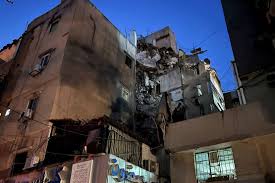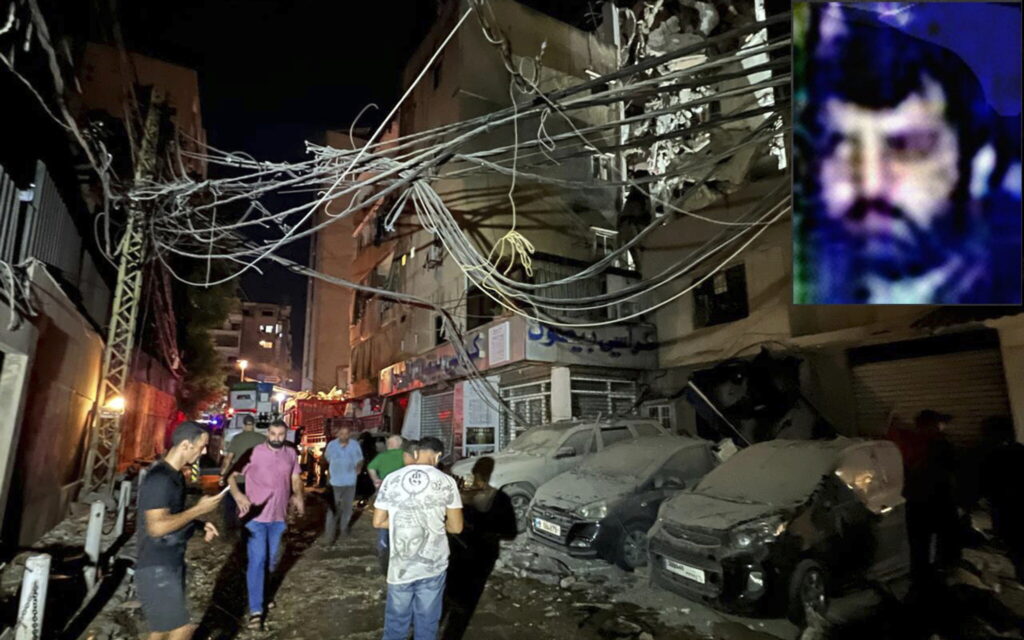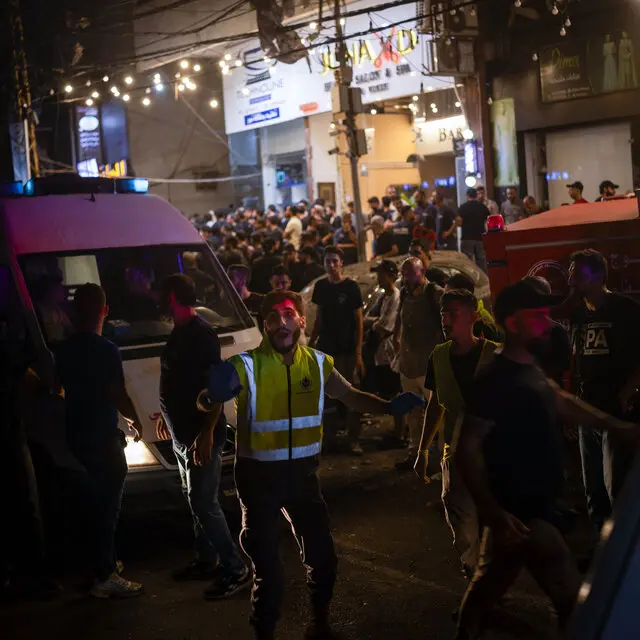The Israeli army says it has carried out what it terms a “precision strike” in Beirut, targeting Hezbollah commander Mushin Shukr. Despite the Israeli military’s claims, Hezbollah sources report that Commander Shukr survived the attack. This incident marks a dangerous new phase in the conflict, potentially drawing Lebanon further into the hostilities and raising fears of a widening regional war.

The strike in Beirut has resulted in civilian casualties, with Lebanese officials reporting 3 civilians killed and 74 wounded. This attack beyond Gaza’s borders complicates diplomatic efforts for de-escalation and intensifies international concerns about regional stability.
Meanwhile, the situation in Gaza remains dire. A dozen Palestinians were killed in an Israeli military attack at the entrance of the Nuseirat refugee camp in central Gaza. In the southern city of Khan Younis, the Palestinian civil defence agency reports approximately 300 people killed and hundreds more wounded or missing following a nine-day ground assault by Israeli forces.

The human cost of the conflict continues to rise at an alarming rate. In Gaza, at least 39,400 Palestinians have been killed and 90,996 wounded since the beginning of Israel’s military campaign. The conflict was triggered by Hamas-led attacks on Israel on October 7, which resulted in approximately 1,139 Israeli deaths and over 200 people taken captive.
Israel’s subsequent military campaign in Gaza has led to widespread destruction and a humanitarian crisis. The recent strike on a Hezbollah target in Beirut indicates a potential broadening of the conflict, raising international concerns about regional stability.

The international community continues to call for an immediate de-escalation and a return to negotiations. However, diplomatic efforts to broker a ceasefire have so far been unsuccessful, with both sides appearing entrenched in their positions.



